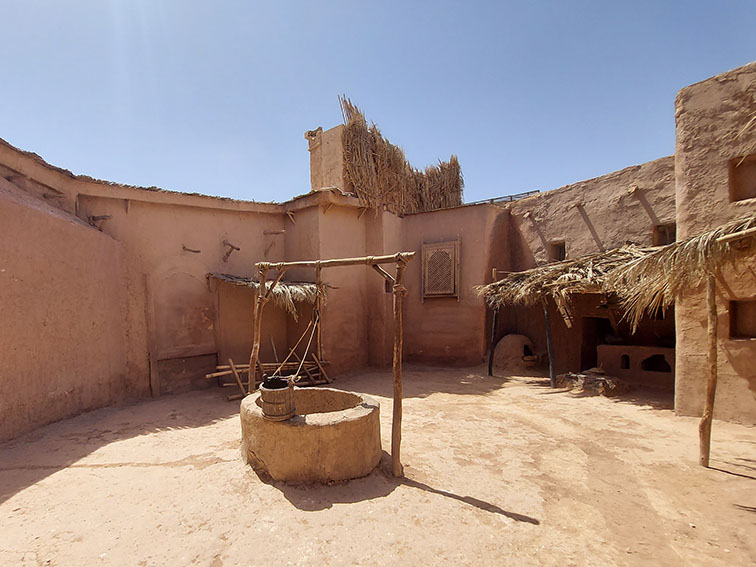
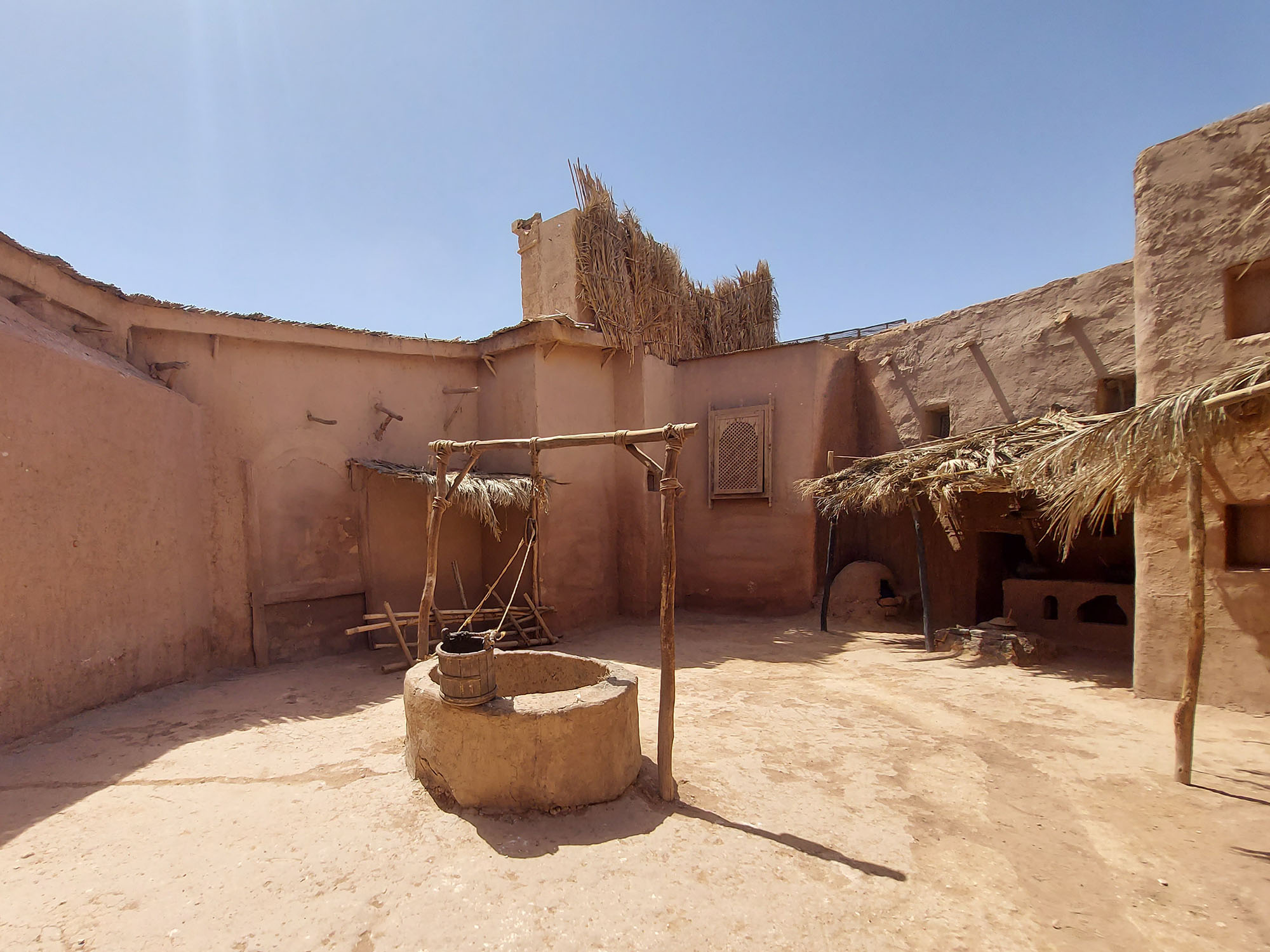
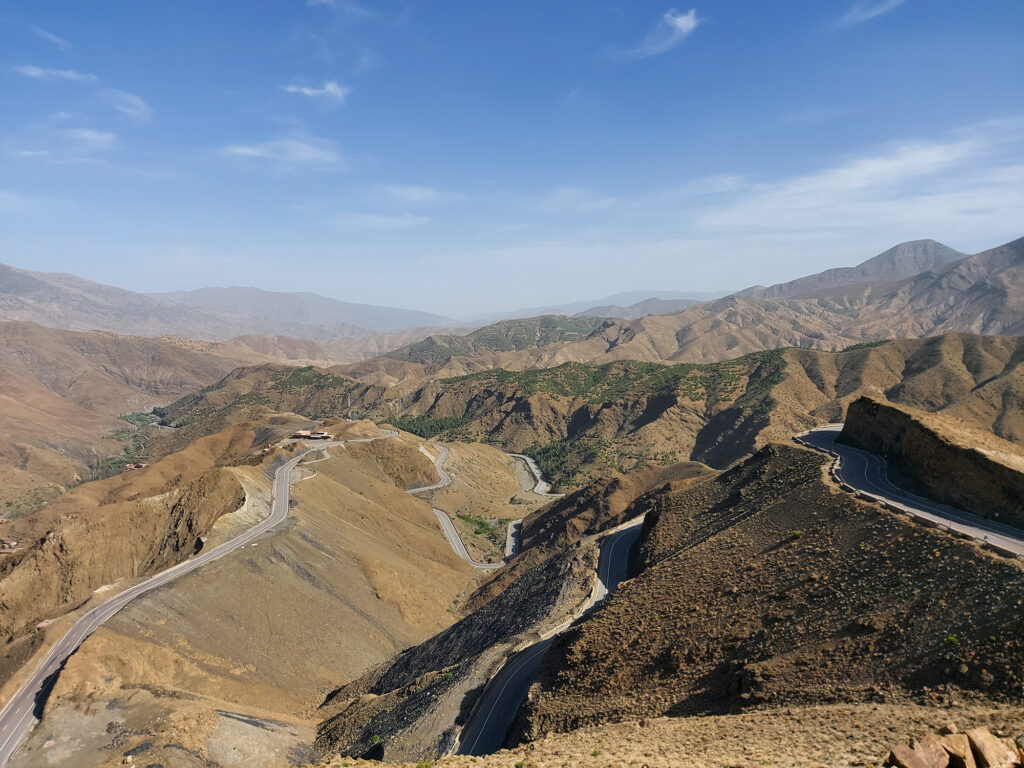
Road from Marrakech to Ouarzazate was built French in the 1920s. This winding road runs through a landscape that is, by turn, arid, mineral-rich environments and fertile valleys. The first pass, Tizi-n-Ait Imger, at an altitude of 1,470 m (4,825 ft), offers a panoramic view of the Atlas chain. Here, the road is lined with stalls selling pottery, mineral rocks and stones whose colours are a little too bright to be natural.
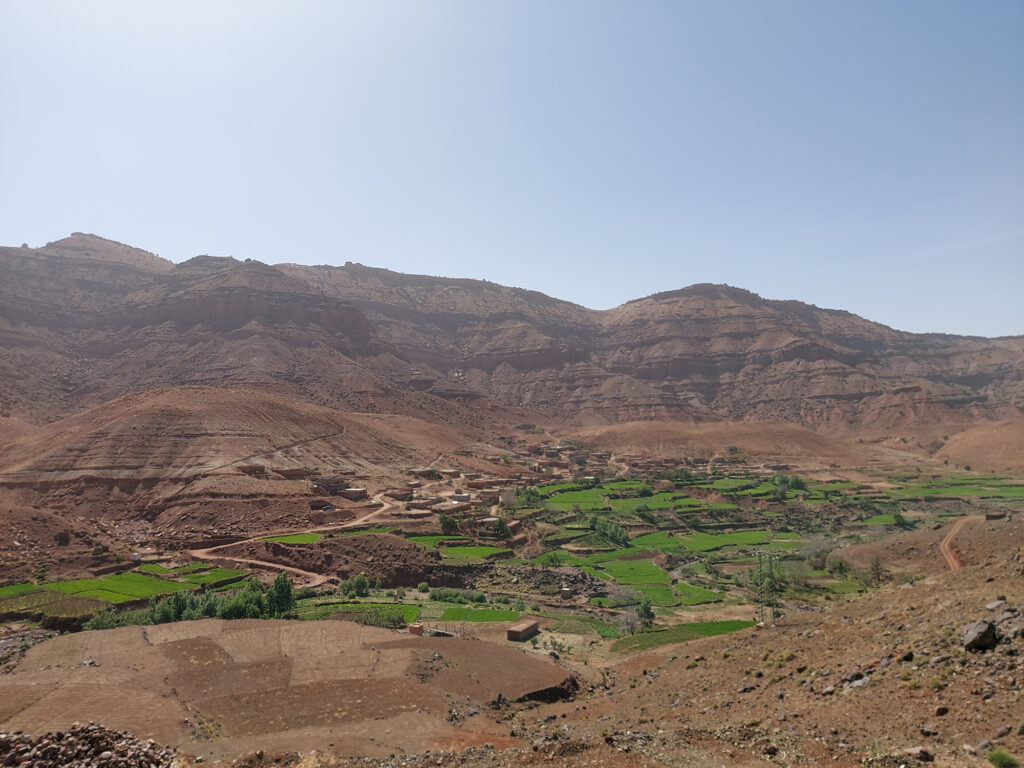
From here up to the Tizi- n-Tichka Pass – which, at an altitude of 2,260 m (7,417 ft), is the highest road pass in Morocco – crops gradually give way to a landscape of bare red soil. The mountains become more rounded and the houses are built higher, with more decoration, anticipating those of the Moroccan south.
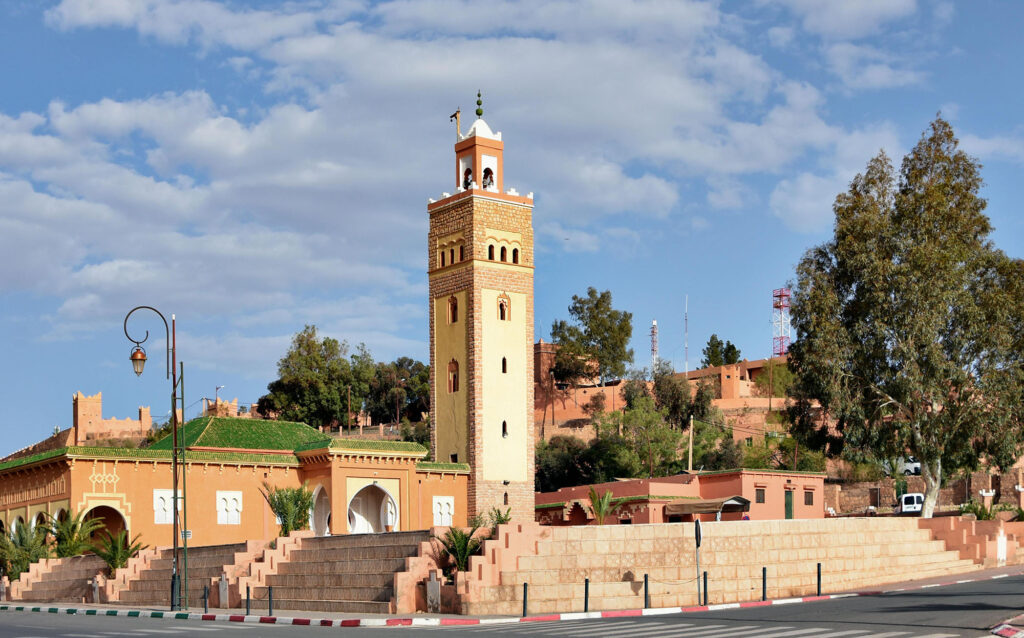
A former garrison town of the French Foreign Legion, Ouarzazate was founded in 1928, having been chosen by the French as a strategic base from which to pacify the South. Located at an altitude of 1,160 m (3,807 ft) at the intersection of the Draa and Dadès valleys, with the Agadir region to the west, it is on the main route between the mountains and the desert. It is also a good base from which to visit Aït Benhaddou.
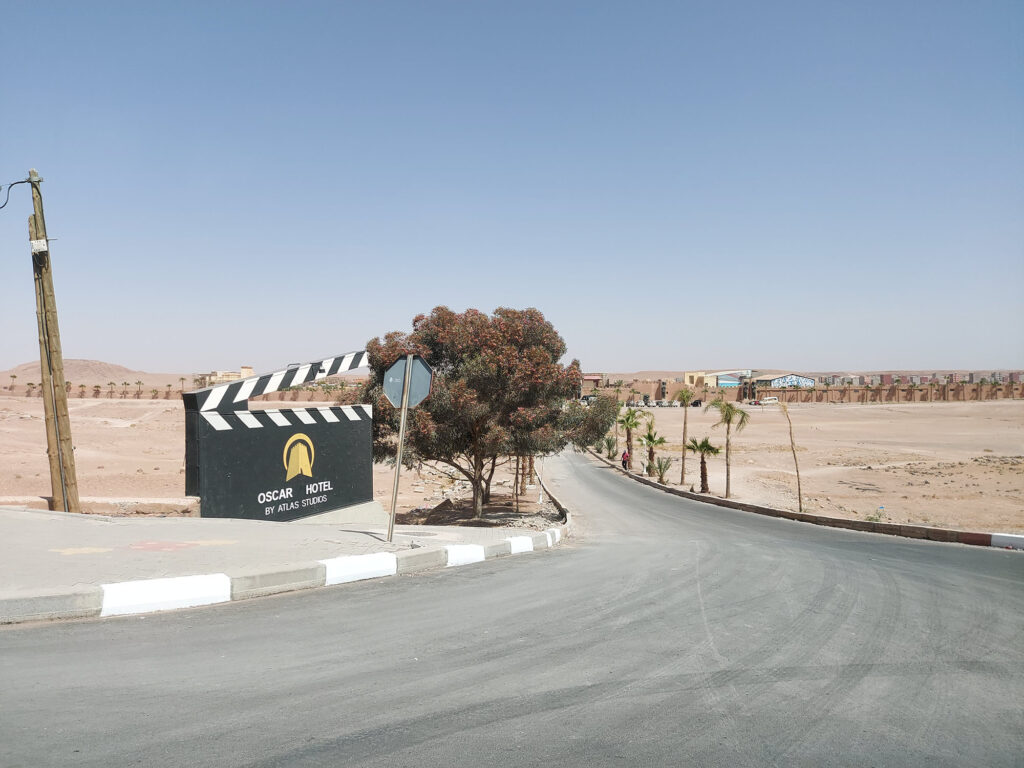
About 6 km (4 miles) out- side Ouarzazate, off the road to Marrakech, are the Atlas Film Studios, surrounded by high pisé walls that look as if they are defended by giant Hollywood-style, pseudo- Egyptian figures. The studios, which cover 30,000 sq m (322,920 sq ft) of desert, provide the livelihood of a considerable portion of the population of Ouarzazate. For a century, hundreds of films have been shot in this region.
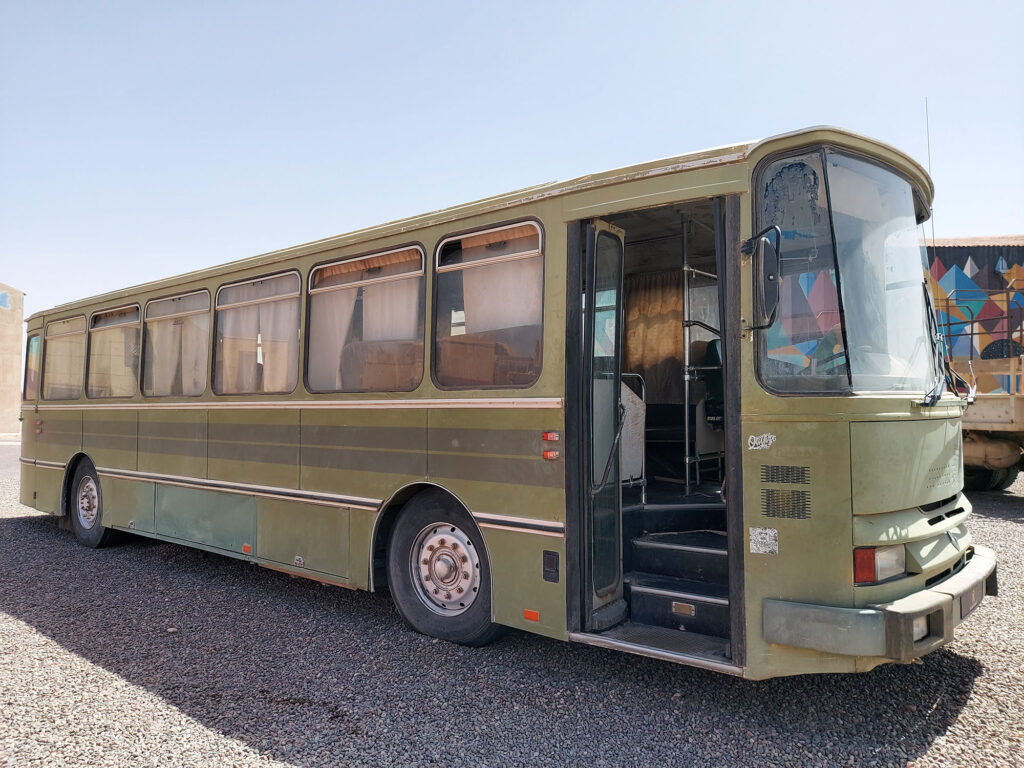
This bus was used in the TV series Prison Break.
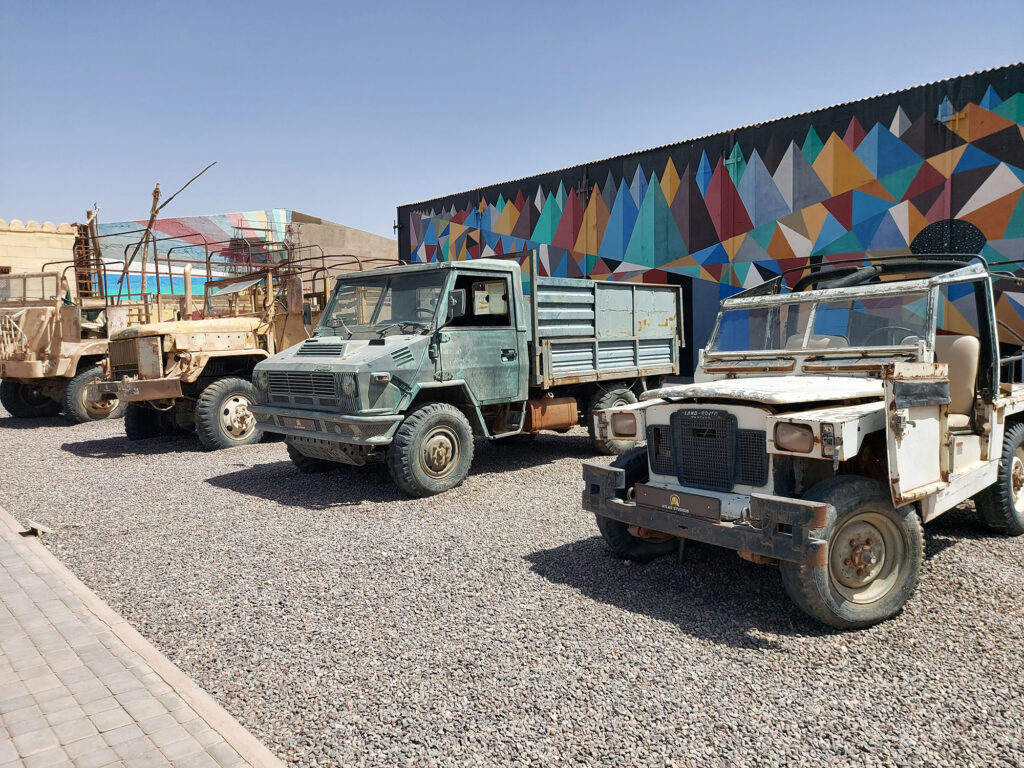
A large number of military vehicles were used during the filming of Black Hawk Down (2001). Morocco was a suitable location for filming the war-torn city of Mogadishu in Somalia.
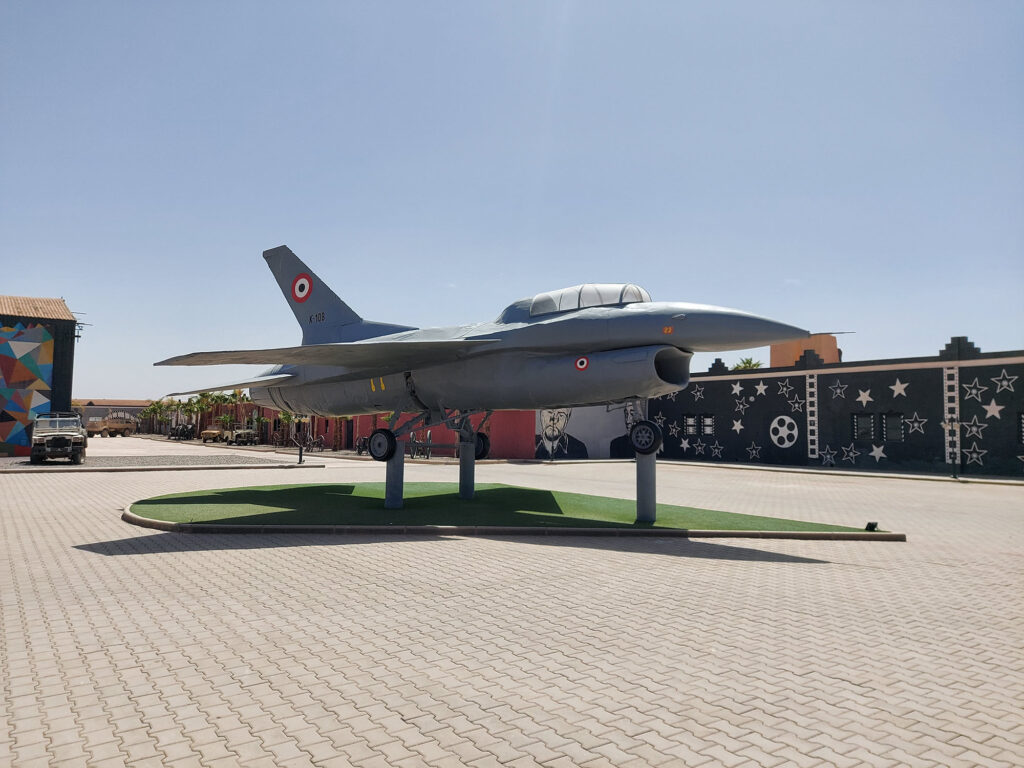
The plane originates from the film The Jewel of the Nile (1985).
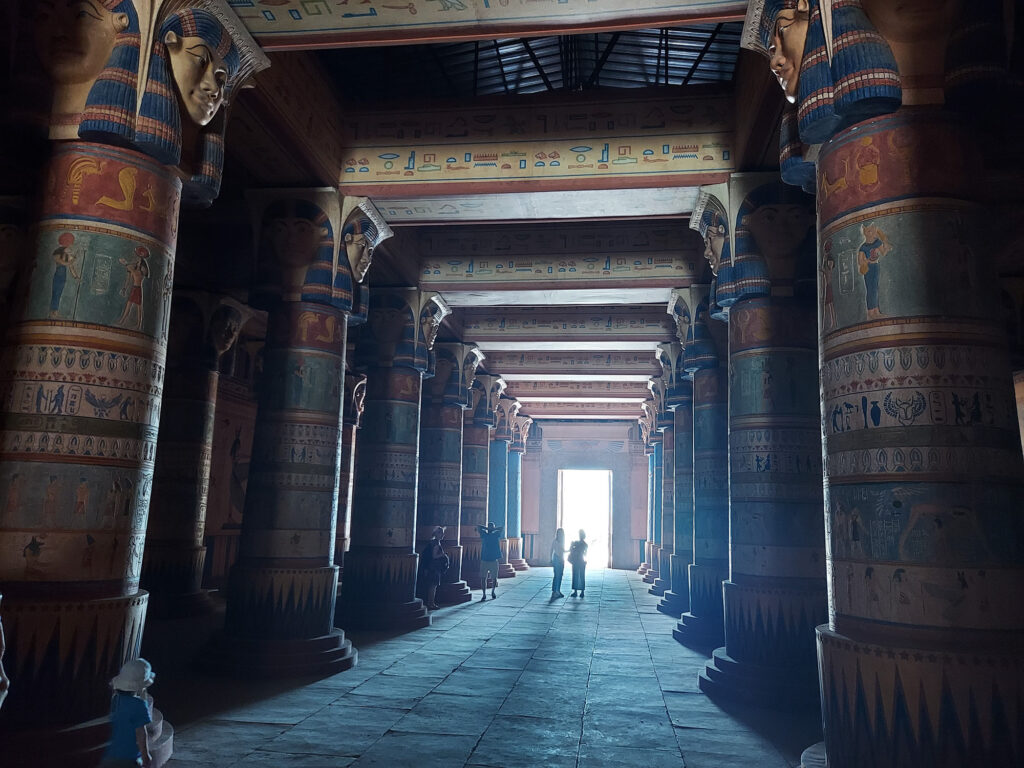
An entire temple from the Old Egyptian period was built out of cardboard and plaster to be used in the film The Mummy (1999).
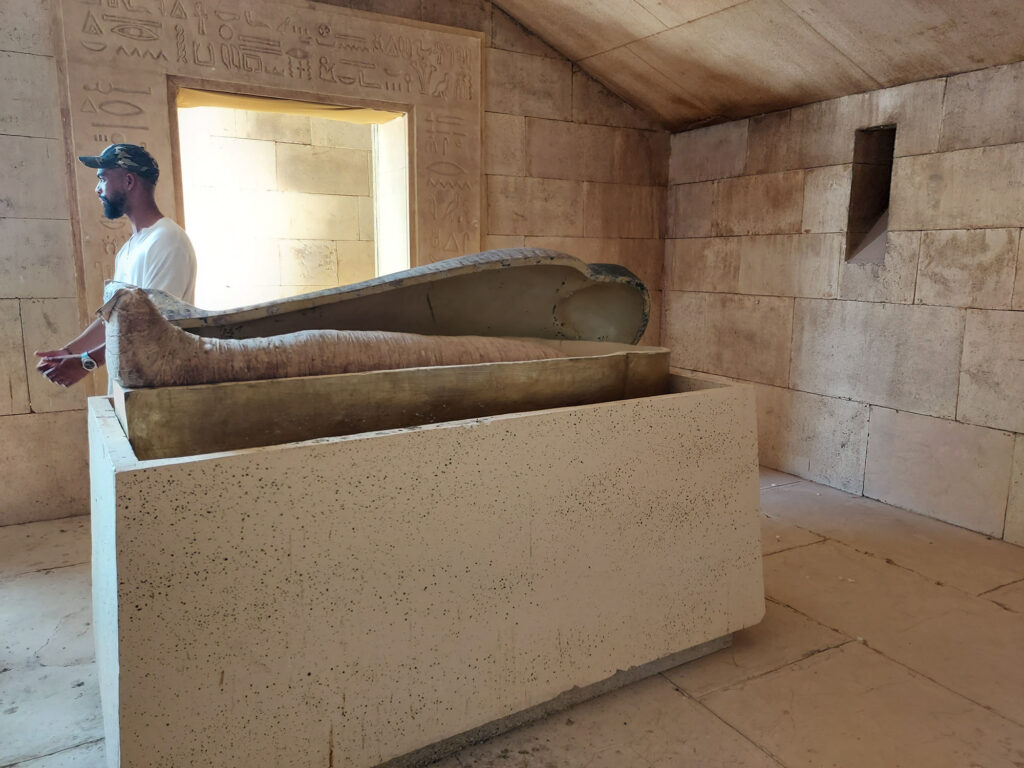
There is also a reconstruction of the sarcophagus itself.
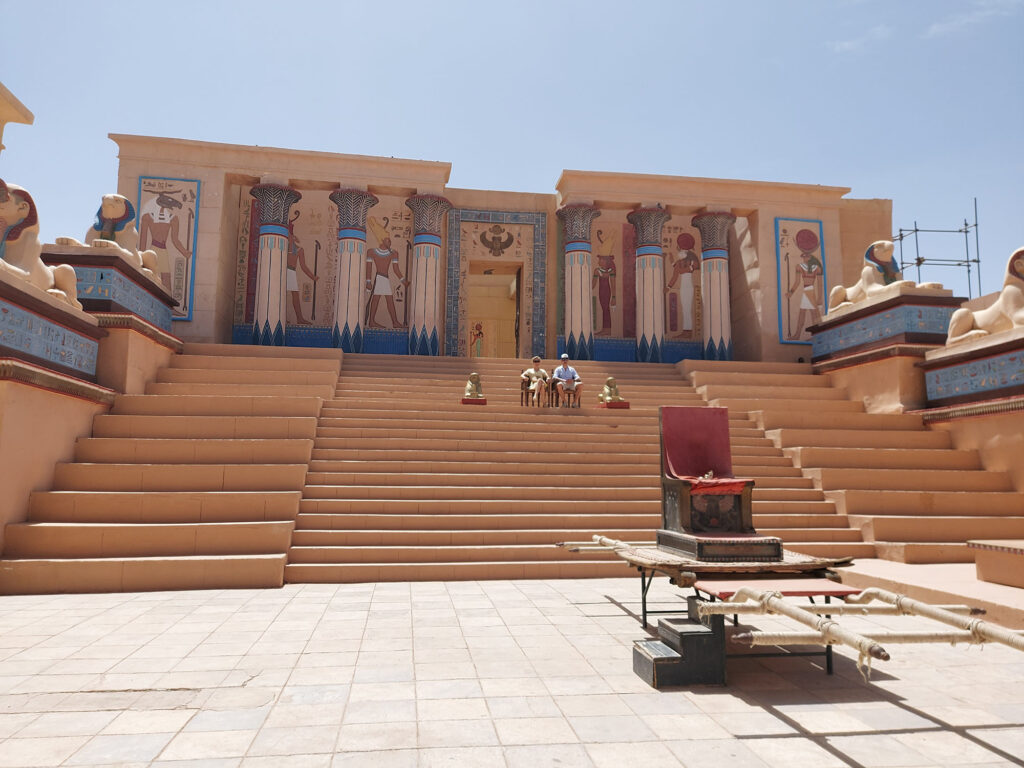
Atlas Studios created special scenery for the film Asterix & Obelix: Mission Cleopatra (2002). After filming, the scenery is not dismantled, as it can be reused for future films and series.
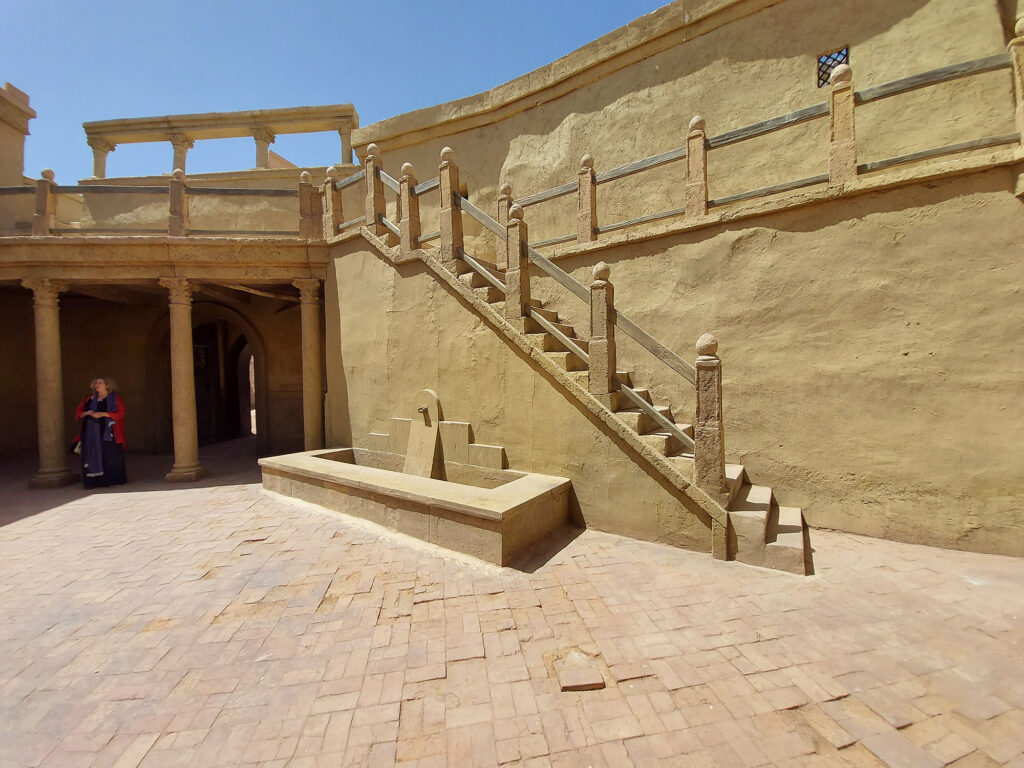
The streets of Rome were also created in Atlas Studios. This building was used as Caesar’s house in the film Brutus vs. César (2020).
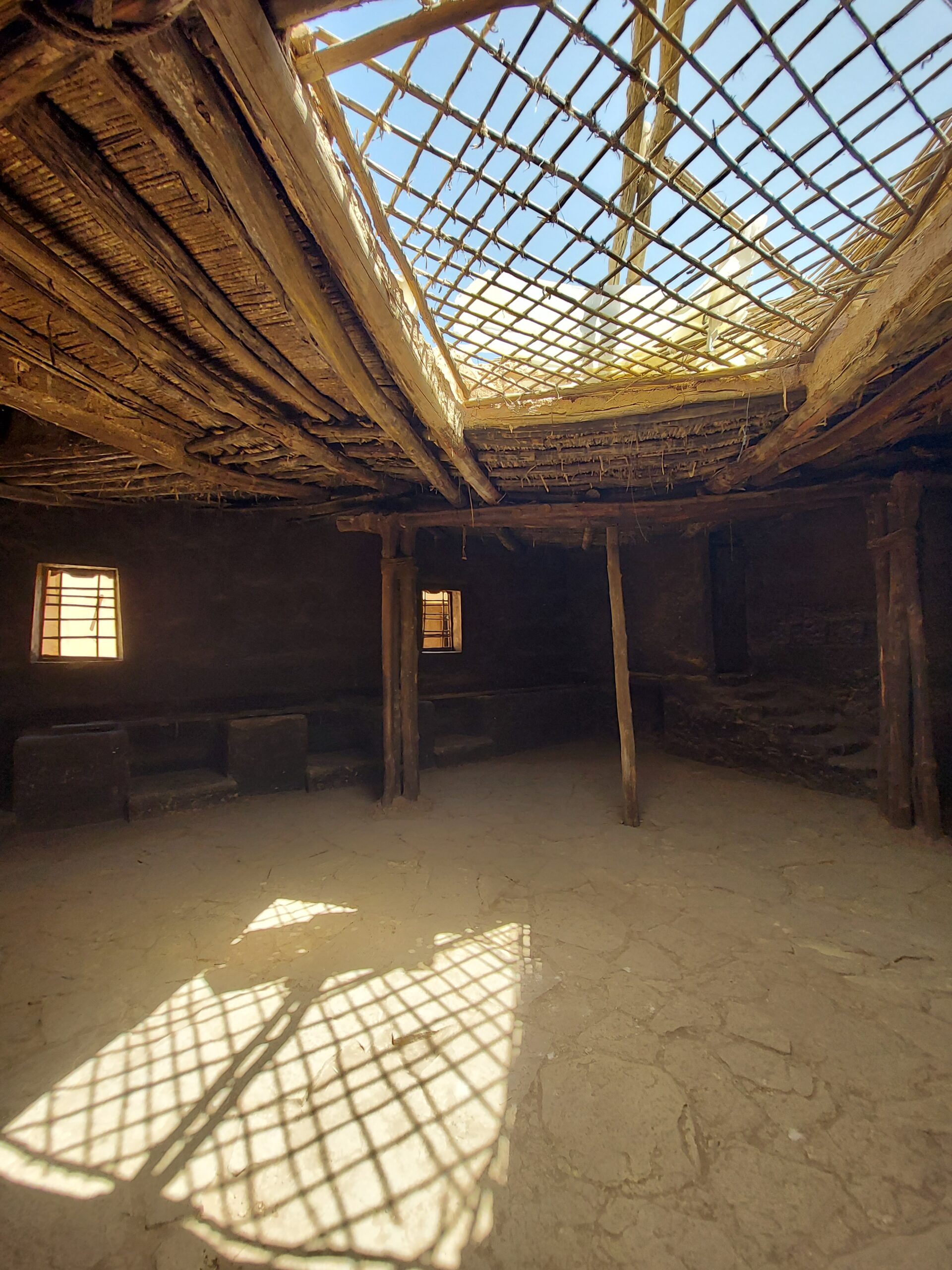
In the famous film Gladiator (2000), slaves in this room waited before entering the Colosseum to fight each other to the death.
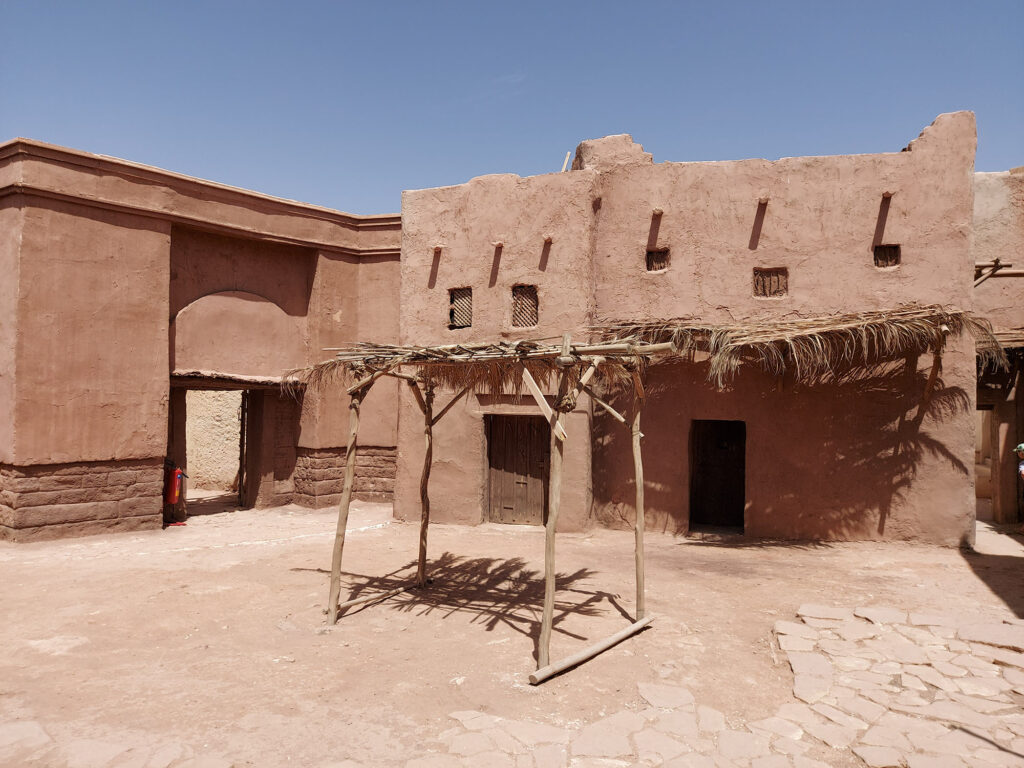
A scene from the film Days of Glory (2006) was filmed at this location.
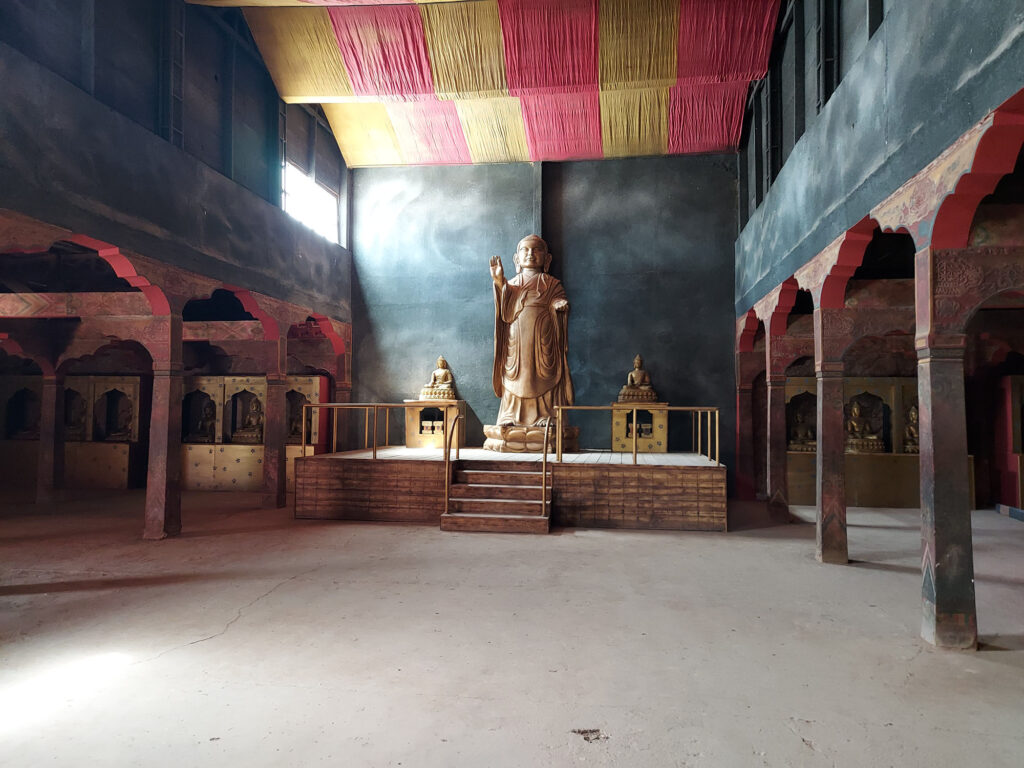
A Buddhist temple was built for the needs of the film Kundun (1997).
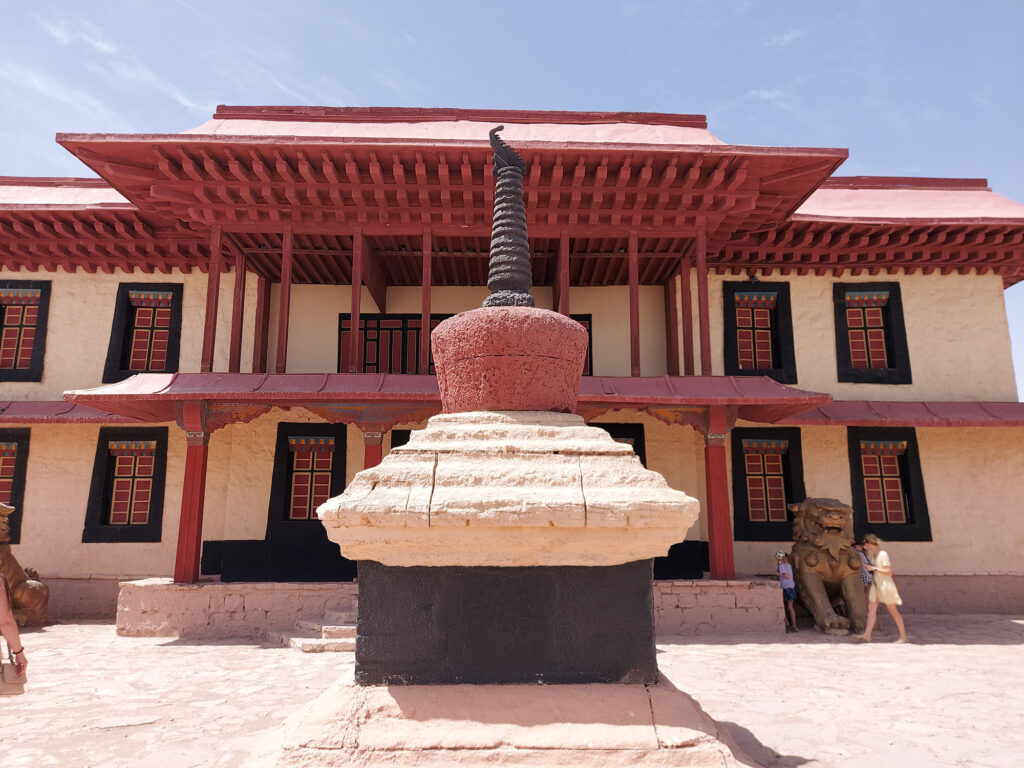
Besides the previously mentioned films, many other movies were filmed at Atlas Studios in Ouarzazate, such as: Ben Hur (TV series, 2009), Kingdom of Heaven (2005), Aladdin (2019), The Living Daylights (1987), The Great Journey (2004), The Way Back (2010), The Hills Have Eyes (2006), The Passion of the Christ (2004), Alexander the Great (TV series).
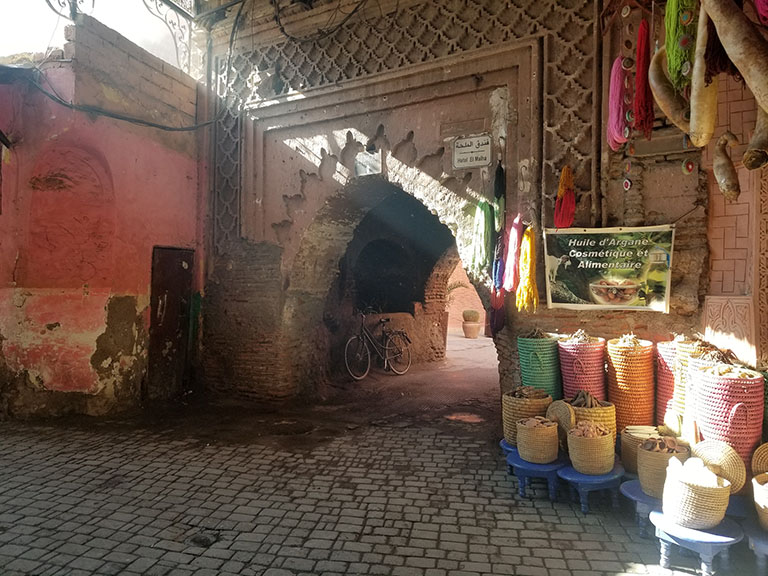
Marrakesh, known for its ocher color, is a city rich in history and cultural significance, having been a central hub during the
Read More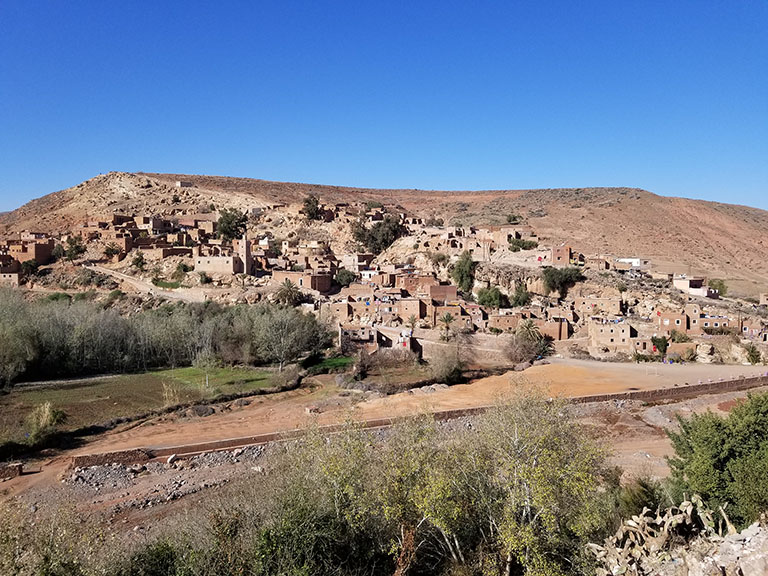
Morocco is a land rich in contrasts, where the vastness of the desert meets the rugged beauty of the Atlas mountains, creating a
Read More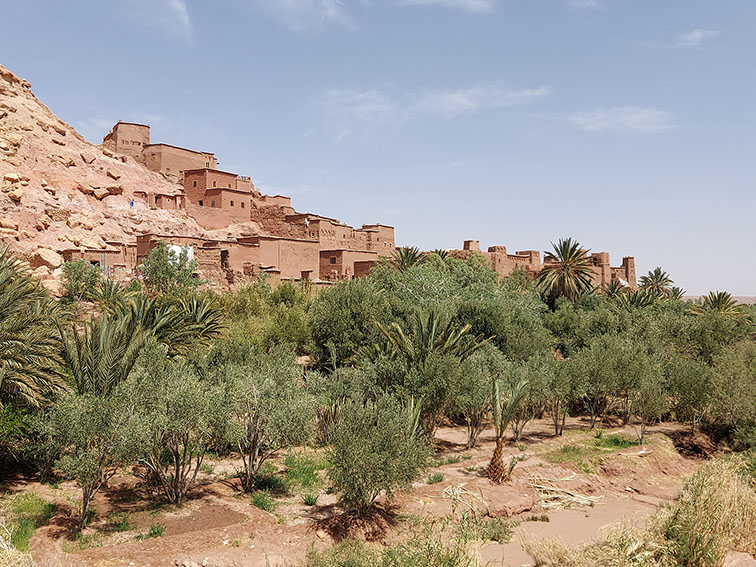
Ait Benhaddou is a historical ksar located in the Ounila Valley, known for its pinkish sandstone structures and rich architectur
Read More
The Ourika Valley, situated about 60 km south of Marrakech in the High Atlas, is a vibrant day-trip destination known for its Be
Read More